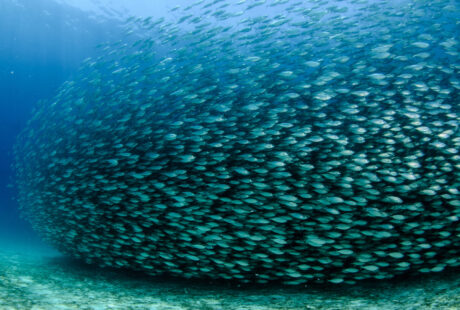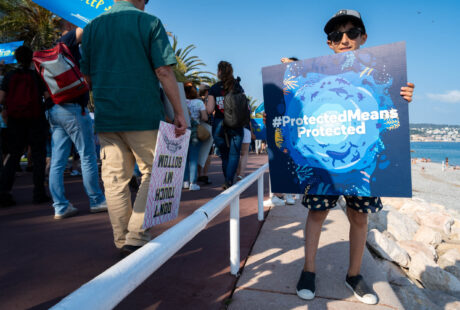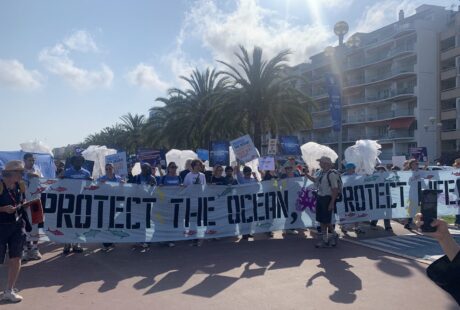At five times the size of the Irish landmass, Ireland’s maritime area is one of the biggest in Europe. Fishing heritage is very strong and forms an important part of the identity of coastal communities. Unfortunately, the industrialisation of the sector means that traditional fishing methods can no longer compete with large trawlers and, as a result, many fish stocks are declining, unemployment in coastal communities is high and marine ecosystems are deteriorating. Unsustainable aquaculture practices and poor water quality from land-based sources also present significant issues for Ireland’s inshore marine ecosystems. Of the different types of Marine Protected Area (MPA) in Ireland, only the Natura 2000 sites are legally protected, although these represent only around 2.4% of the Irish maritime area. While the Irish Wildlife Trust is working to improve the situation, the Irish government clearly needs to step up its protection.
Together with Seas At Risk and other NGOs across the EU, the Irish Wildlife Trust is working on the project ‘Making Marine Protected Areas work in Europe’. The project aims to increase the surface of MPAs and improve the types of protection. To do so requires the community to understand the role of MPAs in restoring and protecting marine life, yet public awareness of marine issues in Ireland remains extremely low. The top-down process to designate Natura 2000 sites has not been very successful, thus improving people’s understanding – particularly in coastal communities – of the benefits of MPAs is central to the success of the project. Ireland is an island nation and the health of the marine environment needs renewed focus and public attention, with a bottom-up approach to MPA designation and management.

Bigger and better MPAs require commitment and buy-in from the public authorities. Firstly, the government needs to complete the MPA Irish network to cover at least 10% of the Irish marine region by 2020 (as established under the international Aichi target), and 30% by 2030. Secondly, public authorities need to be aware of the existence of ‘paper parks’ – areas that are protected on paper but have no effective management measures on the ground. These ‘paper parks’ should be particularly borne in mind when regulating fisheries and aquaculture. Importantly, the expert group’s report advising the government on how to designate the next batch of MPAs is due to be published in August 2020 and is expected to substantially enhance the existing network.
The outcome of the recent Irish general elections remains unclear, with political parties struggling to form a coalition. The election showed a strong increase in the number of seats for environmentally conscious parties, signalling the public appetite for change. However, the recent outbreak of Covid-19 worldwide has had a significant – and likely long-term – impact on the Irish economy and society, raising the spectre of a shift in political priorities. The current crisis highlights the need to protect our natural world, on land and at sea, as a crucial barrier to viral pandemics. This, together with growing public awareness, is cause for optimism about the future of MPAs in Ireland and in Europe.
Posted on: 28 April 2020



